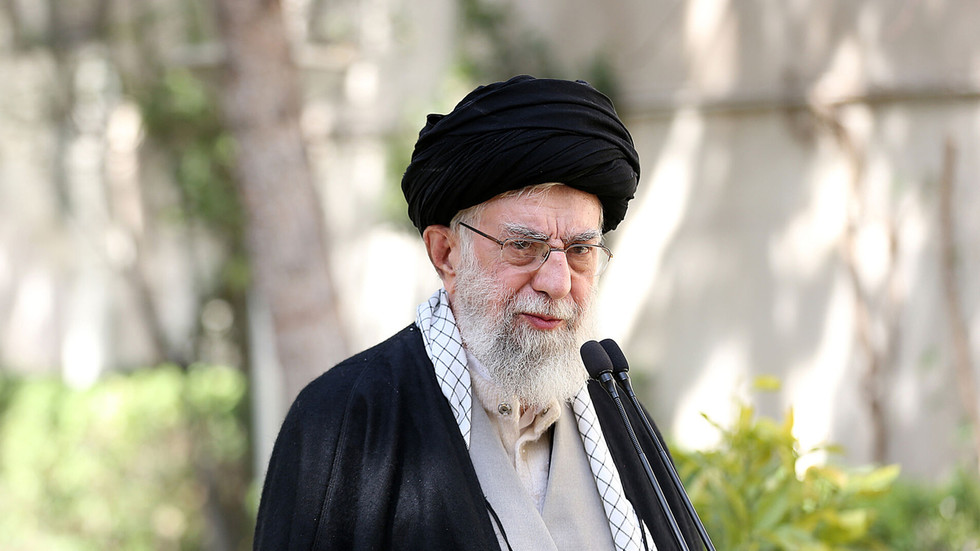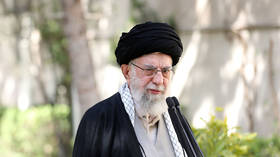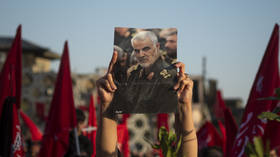
Suspected poisonings have affected hundreds of Iranian schoolgirls in recent months

Iranian Supreme Leader Ali Khamenei speaks during the Tree Planting Day in Tehran, Iran on March 06, 2023. © Getty Images / Anadolu Agency / Iranian Leader Press Office
Iran’s supreme leader Ayatollah Ali Khamenei has branded a string of suspected schoolgirl poisonings an “unforgivable crime,” calling for the “maximum punishment” of the perpetrators, should they be caught.
The leader made the remarks on the sidelines of a ceremony on Monday marking Iran’s National Tree Planting Day, after planting a sapling on the premises of his office in Tehran. Branding the alleged poisonings a “heinous” and “unforgivable crime,” Khamenei urged authorities to investigate the poisonings with utmost seriousness.
“If the poisoning of students is proven, perpetrators should face maximum punishment with no pardon,” he said.
Iran has been plagued by a string of mysterious “mild” poisonings since last November, with the apparent attacks occurring at more than 50 schools across the country. More than 1,000 schoolgirls have been affected by the poisonings, triggering protests by parents and prompting some to take their children out of school altogether.

The authorities have yet to establish neither the perpetrators behind the apparent attacks, nor the motive. On Saturday, Iran’s interior minister Abdolreza Rahmani Fazli announced that investigators had recovered some samples potentially linked to the mystery.
“In field studies, suspicious samples have been found, which are being investigated … to identify the causes of the students’ illness, and the results will be published as soon as possible,” the minister said in a statement reported by local media.
Last week, President Ebrahim Raisi suggested the poisonings might have been carried out by the country’s enemies conspiring “to create fear and despair in the people” and urged the interior ministry and intelligence groups to ramp up efforts in apprehending those responsible.
Earlier, the Deputy Health Minister Younes Panahi suggested hardline religious groups who oppose women’s education, might have had a hand in the affair. “It was found that some people wanted schools, especially girls’ schools, to be closed,” he commented without elaborating.




